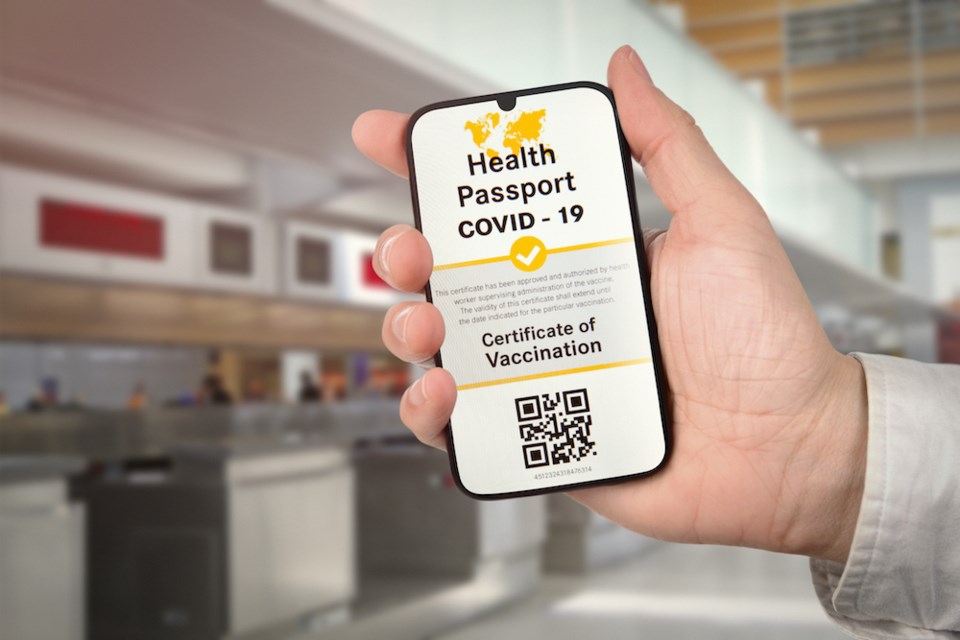Whether or not you have a COVID-19 vaccine could dictate your movements in the future.
While the federal government is moving toward a system for an "internationally accepted proof of vaccination" for international travel, some provinces are introducing a vaccination passport to control domestic movement.
For individuals, proof of vaccination is provided after every shot. An online portal also allows Ontarians to access their COVID-19 vaccination records.
Obtaining proof is never far from hand, said MaryAnn Holmes, the Simcoe Muskoka District Health Unit’s acting vice-president of the immunization department.
“Keeping immunization records is important for all the different vaccines, but with the COVID vaccine in the province of Ontario we’re very fortunate because we have a system,” said Holmes.
In addition to receiving proof of vaccination after receiving each shot, Ontarians can also access proof through the COVaxON system online where all the COVID-19 vaccines administered in Ontario have been documented.
Members of the general public can access their own information by inputting their Ontario Health Card number or they can obtain a number through the health unit.
“I think that will become really handy,” said Holmes. “Over the coming months and the coming years they need to have proof of that documentation they will be able to easily access that online.”
The health unit will also be able to help people over the phone if they don’t have online access.
Holmes said the system has already proven useful for pharmacies and other organizations involved in administering vaccines.
Snowbirds and others who have been vaccinated outside of Ontario are encouraged to update their information on the site as well.
Even prior to the pandemic, the health unit encouraged area residents to keep their vaccines up to date and to keep a record of them. And while the yellow recording card is still being used, there is now an app called CANImmunize to help keep it all in order.
Meanwhile, as governments consider their own systems, the federal, provincial and territorial privacy commissioners have emphasized that whatever is developed needs to respect Canadians’ right to privacy.
“Vaccine passports must be developed and implemented in compliance with applicable privacy laws. They should also incorporate privacy best practices in order to achieve the highest level of privacy protection commensurate with the sensitivity of the personal health information that will be collected, used or disclosed,” they said in a joint statement issued in May.
Quebec, meanwhile, expects to have a vaccine passport for some non-essential settings as well high-risk situations.
That’s something the Ontario Board of Trade has urged the Ontario government to do as well.
During a media briefing Tuesday, Ontario’s medical officer of health, Dr. Kieran Moore, said that’s not on the table here.
“A passport for within Ontario has not been contemplated by this government. The vision of this government has been to have the highest vaccination rate possible… and that is going very, very well,” he said, pointing to the 57 per cent of adults in Ontario who have had their second shots and nearly 80 per cent who have received their first.
Locally, officials continue to work toward getting more people vaccinated.
“We have opened up some walk-in availability so anybody who’s not yet been vaccinated at all with dose one can come to any of our immunization clinics that are happening in our community,” said Holmes. “We’re also starting to take walk-ins for dose two and that schedule is also available on our website.”
For more information, visit the health unit's website.



